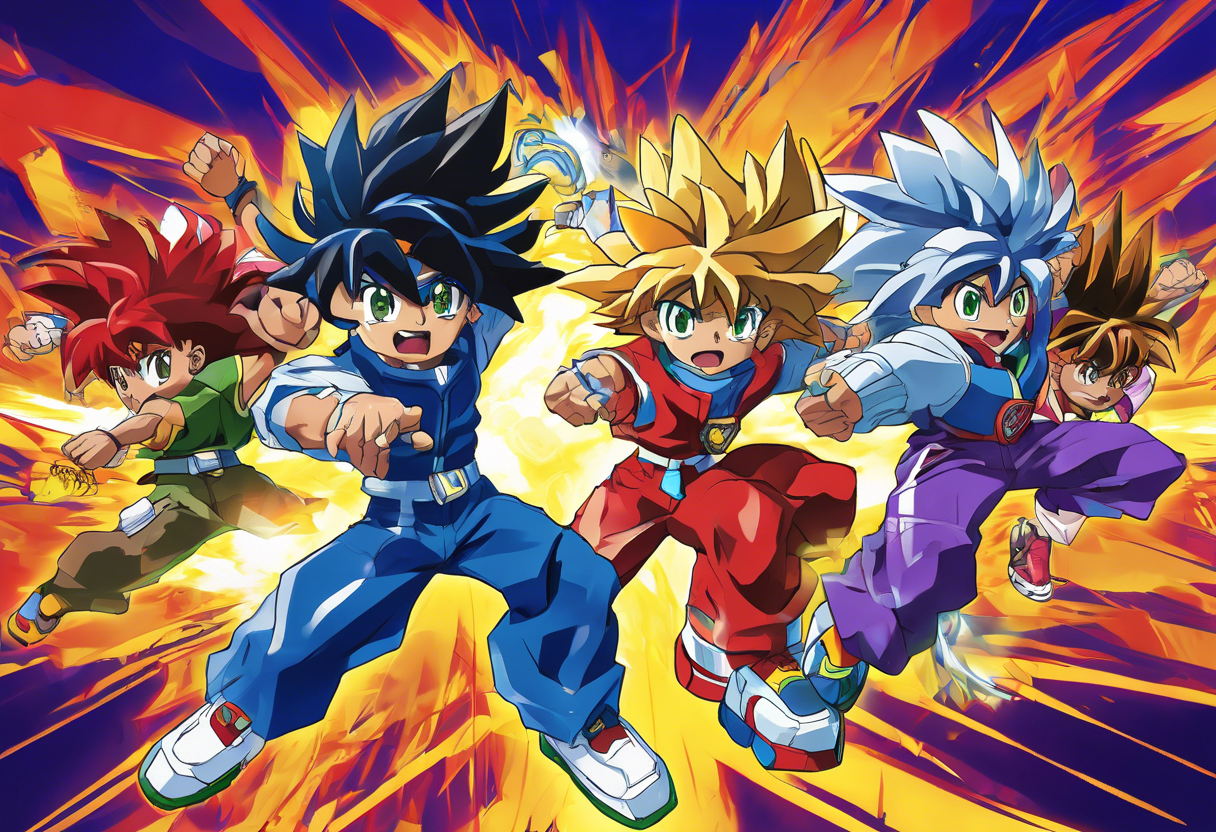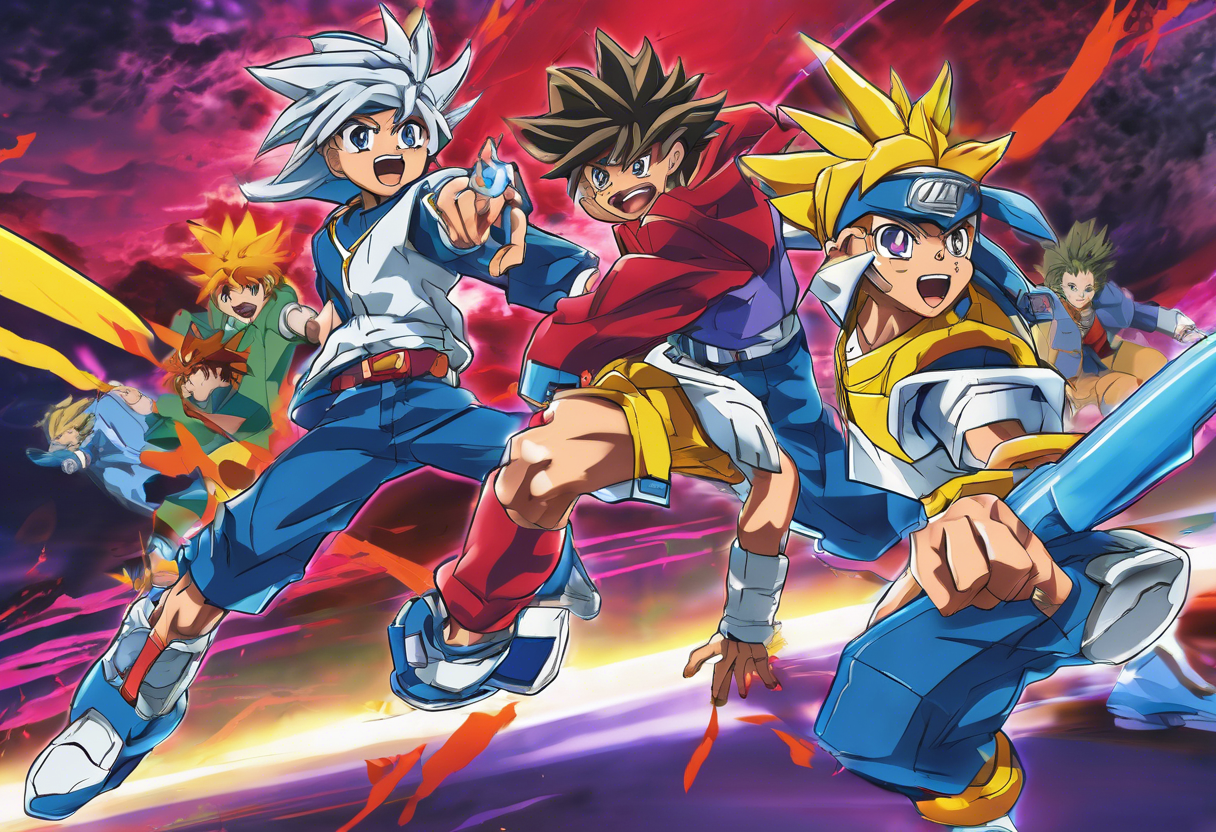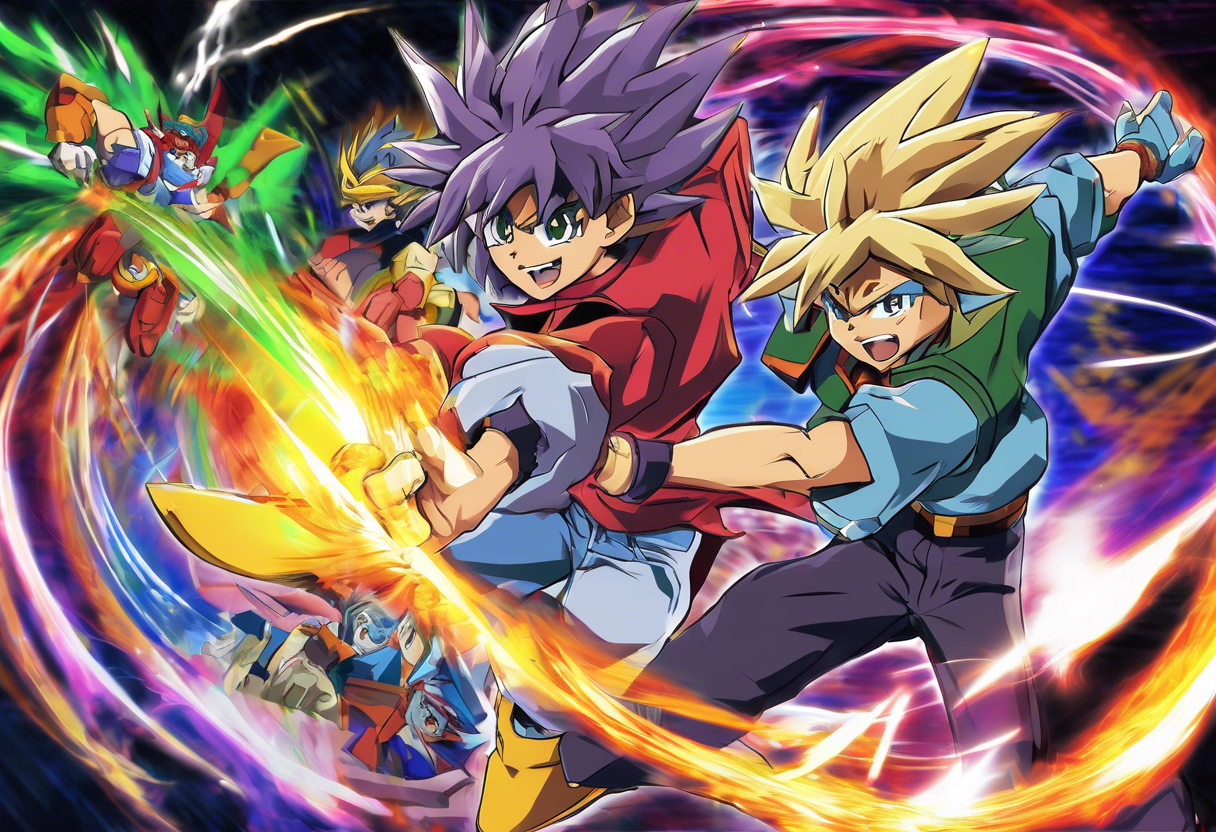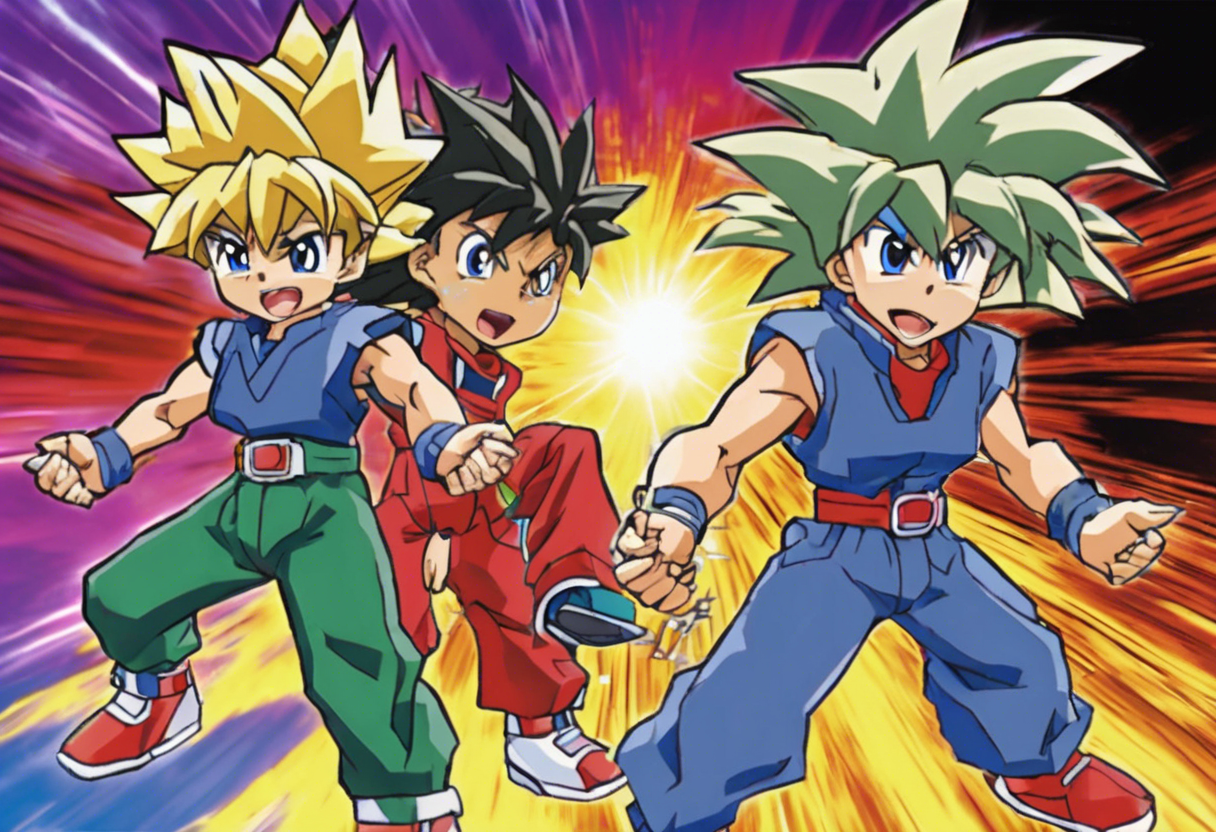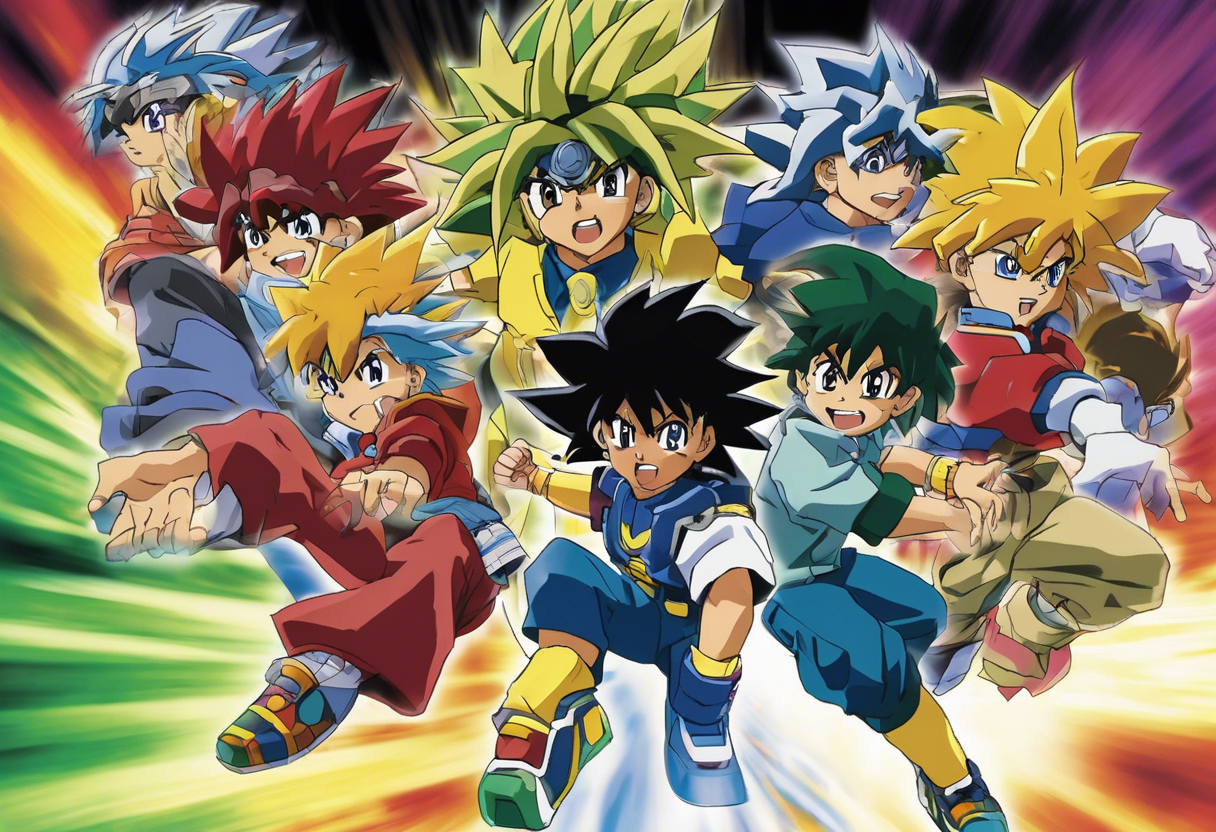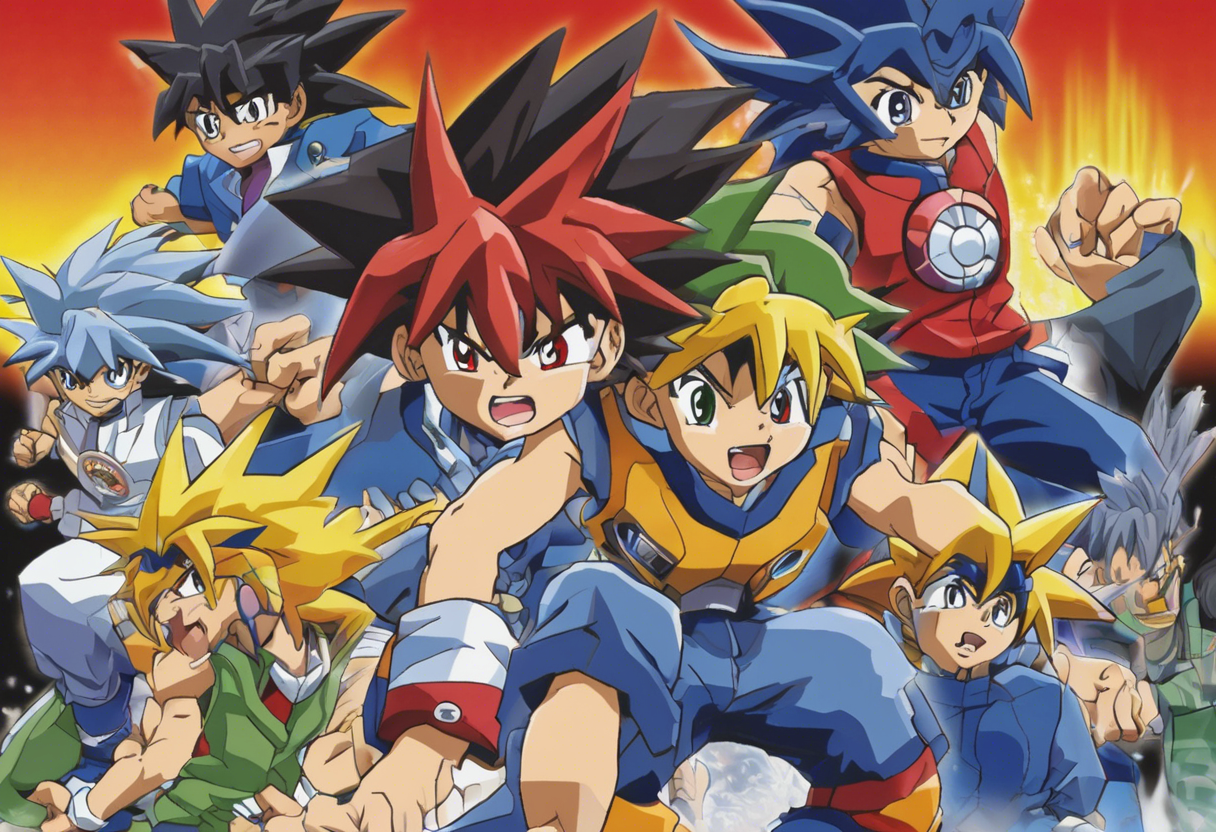Contents
Beyblade (2001) – Episode 42: The Fateful Final Match
Introduction
"Beyblade (2001) – Episode 42: The Fateful Final Match" is a pivotal episode in the first season of the anime series "Beyblade," which premiered on January 29, 2001. Produced by Madhouse and directed by Toshifumi Kawase, this episode is part of a larger narrative that follows the adventures of a group of young Beybladers known as the Bladebreakers. The series was written by various screenwriters, with Takafumi Kikuchi and Yoshifumi Fukushima being key contributors. The episode’s production involved a team of animators, voice actors, and other creative personnel who helped bring the vibrant world of Beyblade to life.
This episode stands out within its genre due to its intense focus on character development, strategic battles, and the emotional stakes involved in the competitions. It is a testament to the series’ ability to balance action, drama, and friendship, making it appealing to a wide audience.
Plot Summary
Episode 42 of "Beyblade" is set during the Beyblade Regional Qualifying Tournament, a critical event in the series where the best Beybladers gather to compete for the top spot. The episode begins with the continuation of the tournament, where Takao Kinomiya, Max Tate, and Kyojyu are among the competitors vying to dethrone Kai Hiwatari, the reigning champion.
The tournament is in full swing, with Max having already won his block and advanced to the finals. Kyojyu, however, faces a significant disadvantage without a Bit-Beast in his blade and is quickly defeated by Kai. This loss angers Takao, who is determined to win and prove himself.
Takao’s journey through the tournament is marked by intense battles against various opponents, including Motegi, Suzuka, Tsukuba, and Hiruta. These battles are not just about winning but also about the friendships and rivalries that are forged and tested during the competition. Hiruta, in particular, poses a formidable challenge, as he destroys one of his partner’s Beys, leaving the match between him and Takao.
Despite the odds, Takao emerges victorious, showcasing his skills and sportsmanship. His win is a significant moment in the episode, as it highlights his growth as a Beyblader and his commitment to fair play. The introduction of Rei Kon (Ray Kon in the English dub) at the end of the episode adds a new layer to the story, setting the stage for future interactions and conflicts.
The episode delves into the emotional and psychological aspects of the characters, particularly Kai, who is struggling with his own demons. His past and his relationship with the other characters are subtly explored, adding depth to the narrative. The tournament setting allows for a variety of interactions between characters, each with their own motivations and backstories.
The battles in this episode are meticulously detailed, with a focus on strategy and the unique abilities of each Beyblade. The animation is vibrant and dynamic, capturing the energy and tension of the competitions. The voice acting brings the characters to life, adding an emotional resonance to the story.
As the episode progresses, the stakes become higher, and the tension builds towards the final match. The audience is kept engaged through the suspenseful battles and the personal struggles of the characters. The episode concludes on a high note, with Takao’s victory and the anticipation of what is to come in the next episodes.
Themes and Symbolism
"Beyblade (2001) – Episode 42: The Fateful Final Match" explores several central themes that are integral to the series. One of the primary themes is the importance of friendship and teamwork. Despite the competitive nature of the tournament, the characters often find themselves supporting and encouraging each other. This theme is symbolized through the interactions between Takao, Max, and Kyojyu, who, despite their individual goals, remain loyal and supportive of one another.
Another significant theme is perseverance and determination. Takao’s journey through the tournament is a testament to his unwavering commitment to his goals. His victories and setbacks serve as a metaphor for the real-life challenges that one faces and the importance of staying focused and determined.
The episode also touches on the theme of identity and self-discovery. Kai’s struggles with his past and his current role as a champion are symbolic of the broader human experience of finding one’s place in the world. His character arc in this episode adds a layer of complexity to the narrative, making it more relatable and engaging.
Cultural Impact
"Beyblade (2001) – Episode 42: The Fateful Final Match" had a significant cultural impact upon its release. The episode, along with the entire series, contributed to the popularity of the Beyblade franchise, which became a global phenomenon. The series inspired a range of merchandise, including the iconic Beyblade toys, and influenced other anime and manga series.
The episode’s focus on competitive battling and strategic gameplay resonated with audiences, particularly children and young adults, who were drawn to the excitement and suspense of the tournaments. The series also spawned several adaptations, including video games, movies, and sequels, further solidifying its place in popular culture.
Critical Reception
"Beyblade (2001) – Episode 42: The Fateful Final Match" received positive reviews from both critics and audiences. Critics praised the episode for its engaging storyline, well-developed characters, and the intensity of the battles. The animation and voice acting were also commended for their quality and contribution to the overall experience.
Audiences appreciated the episode’s ability to balance action and drama, making it appealing to a wide range of viewers. However, some critics noted that the series relied heavily on formulaic tournament arcs, which could become repetitive. Despite this, the episode was well-received and is remembered fondly by fans of the series.
Legacy
"Beyblade (2001) – Episode 42: The Fateful Final Match" continues to hold a special place in the hearts of fans and within the broader context of anime history. The episode’s influence can be seen in later series that adopted similar tournament-style storytelling and emphasized character development and strategic battles.
The Beyblade franchise as a whole has inspired numerous other anime and manga series, and its impact on the toy industry is undeniable. The series remains a beloved classic, with new generations of fans discovering and enjoying it. The enduring relevance of this episode and the series as a whole is a testament to the timeless appeal of its themes, characters, and storytelling.

